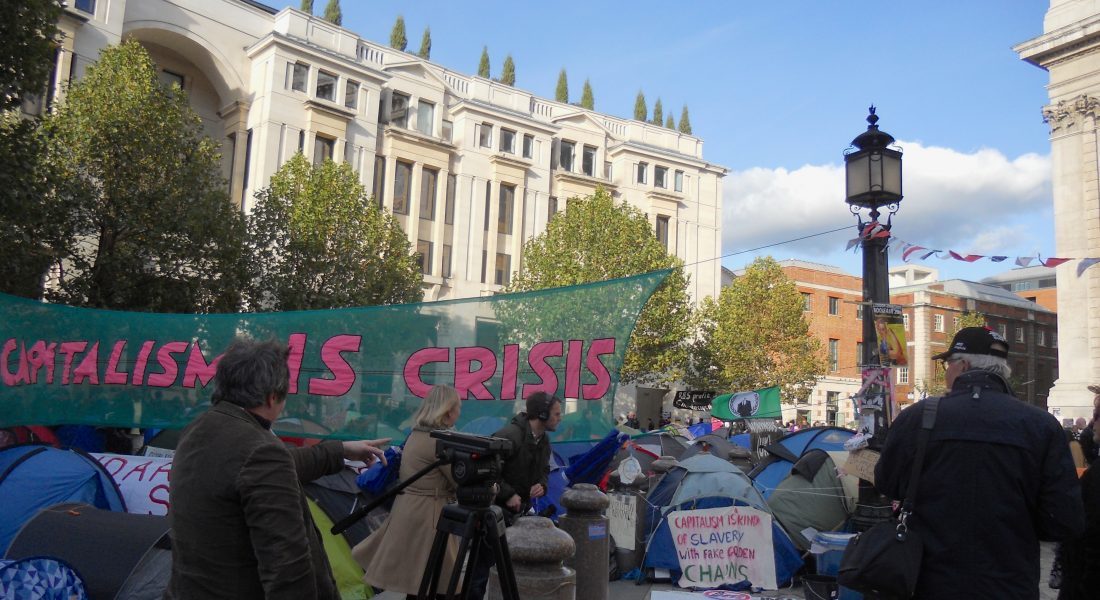Tim S.

How would you define Occupy ?
A space for people interested in democracy, social and economic justice, peace, human rights and equality to meet, organise together and discuss alternative futures for the UK and the world.
What were you doing before Occupy ?
I was working on different campaigns, including on tax justice, anti-austerity and nuclear disarmament.
Why did you participate in Occupy?
I felt it was an important time to help create a democratic and inspiring space where people could meet face-to-face, find ways to organise radical political action and learn about different struggles.
What impact did Occupy have on your personal life?
It helped me to rethink how the left and social movements should organise politically, whether in terms of consensus decision-making in small groups or on bigger, national and international levels. I also met a lot of great people with inspiring stories who had a lot of energy and ideas about alternative futures.
Did Occupy change the ways you think, feel and interact with the world? If yes, how so? What do you feel that you learned (or unlearned) that was unique to Occupy?
As someone who has lived in London for a long time one thing Occupy did was make me look again at the way we use and experience space in the city. For example, which communities are included and excluded and why the City of London itself feels so artificial, anodyne and disconnected from reality- despite having some great architecture and being steeped in history. This was partly because Occupy was exploring the underlying power relationships (of finance and trade and who owns what) producing the current system.
What impact do you think Occupy has had on the economic and political situation?
I think it highlighted some key issues at the time, raising their media profile and made important connections, for example how big business and greed is wrecking the environment. It also maybe changed the image some people have of protesters for the better. Occupy also allowed people to become aware of different social movements and hopefully provided a space for them to experiment with different forms of communicating which they could use for future organising and be more confident in doing so. It also helped raise the importance of inequality and elite power as social problems, which probably helped strengthen existing campaign groups and galvanise the movement that swept Jeremy Corbyn to the Labour leadership.
Given the current political and economic situation, what is your view on what people can do to bring long lasting systemic change?
Systemic change requires long-term struggle and the problems our society faces are really significant so I think people should find an issue or cause they are interested in or feel an affinity with and then try to find time to meet like-minded people, whether in a political or social group, on a consistent basis in order to take well thought out and strategic political action. Getting informed about political and social issues through alternative media outlets such as Democracy Now would also help people a lot.
Before Occupy, were you involved in activities related to the reasons why you participated in Occupy? (Activist groups, campaign groups, media platforms, volunteering, research, etc)
Yes
Which ones?
Campaign Against Arms Trade, UK Uncut
Are you still involved in activities related to the reasons why you participated in Occupy? (Activist groups, campaign groups, media platforms, volunteering, research, etc)
Yes
Which ones?
I work on peace and nuclear disarmament issues.
Are you still actively working or engaged with people that you met through Occupy?
Yes